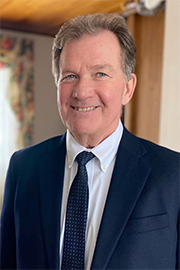- Aug/29/22 10:15:00 a.m.
This is my first opportunity in the 43rd Parliament to thank residents of Oakville North–Burlington who put their trust in me for a second time and re-elected me to represent them at Queen’s Park. I am grateful to my campaign team and the volunteers who worked hard to achieve a victory in our community.
Under the leadership of our Premier, we presented a strong and clear message to the people in my community and across Ontario: rebuilding Ontario’s economy, building highways and key infrastructure, working for workers, keeping costs down by cutting gas taxes and building 1.5 million new homes over 10 years.
We promised to get things done for Ontario—and the people responded. Because in communities like ours, this government was getting things done long before the election: five new schools in four years; more than 1,100 new long-term-care beds; $295 million for electric vehicles at Ford Canada in Oakville; and 120 acres added to the greenbelt along Fourteen Mile Creek. And we are continuing to get things done in Ontario: catching up in schools with $225 million for families with kids—and $26.6 billion for education this year, the highest ever; keeping our hospitals open with 6,000 new health care workers; and $10-a-day child care.
We’ve got a great record, a great plan, and we can look forward to a great future for the people across Ontario.
- Hear!
- Rabble!
- Aug/29/22 11:00:00 a.m.
A new Statistics Canada report has indicated that the number of residents in the province could climb to more than 19 million by 2043. This is an increase of about 30% since 2021. And many are choosing Etobicoke and Toronto as their home.
Experts warn that Ontario is ill-prepared to handle the growth as it lacks the infrastructure to support the growing population, especially in major urban centres like Toronto. Because of years of neglect and improper planning on transit expansion by the previous Liberal government, propped up by our friends the NDP, cities like Toronto are already living with the consequences of their inaction.
Speaker, what is the government doing to build up our transit infrastructure to address the incoming population increase?
Transit and infrastructure experts are raising concerns about what the future could look like if we don’t make the investments needed for tomorrow. They have warned us to keep pace with the growth we see; and we need to plan and act now on transit and other infrastructure needs.
Speaker, can the Associate Minister of Transportation please explain how our government is addressing future transit infrastructure needs today?
- Hear!
- Rabble!
- Aug/29/22 11:20:00 a.m.
Thank you, Minister. The future of our economic recovery and the success of our businesses rely on Ontario becoming a skilled trades and training leader. Our province badly needs carpenters, electricians, plumbers and a full array of skilled trades and blue-collar workers who will help us overcome our housing shortage, reconstruct our infrastructure and help restore our economy.
Our workers are the best in the world, and they deserve to have a government that values the contributions they make day in and day out.
Mr. Speaker, can the minister tell us what our government is doing to help level up skilled trades for our province’s workers, which will help return our economy and businesses to their previous position of strength?
- Hear!
- Rabble!
- Aug/29/22 11:20:00 a.m.
Thank you for the question from the member for Chatham-Kent–Leamington.
By working with First Nations, we are ensuring that consultation is done the right way. Webequie and Marten Falls First Nations are leading environmental assessments for road projects and are integrating Indigenous principles with the provincial process. Just last week, the Webequie Supply Road Project team held another open house session for Indigenous community members to learn about their project.
Our government stands shoulder to shoulder to shoulder with the First Nations partners. During my recent visit to Webequie First Nation, I offered our government’s full support to assist with consultation. When we consult the right way, we get things done, and we will make real progress on economic reconciliation.
Our message is very simple: There is no green economy without mining. We need the critical minerals in the Ring of Fire to meet our climate goals. That’s why our government is getting it done by working with the First Nations to build the “corridor of prosperity” that leads to the Ring of Fire.
Our government committed almost $1 billion to support road development, broadband infrastructure and other community projects. Environmental assessments for two of the road projects are already under way. We can accomplish anything when we build strong partnerships with the First Nations, and that is exactly what our government is doing.
- Hear!
- Rabble!
- Aug/29/22 4:20:00 p.m.
My thanks to the member for Sudbury for his contributions this afternoon to debate. I do appreciate the member’s unique perspective, coming from northern Ontario.
Of course, we recognize that one of the things we hear about a lot from our colleagues in the north is the importance of investing in our infrastructure, including road infrastructure. We hear about the importance of broadening highways and ensuring there’s adequate shoulders. We hear about the importance of investing in good road surfaces in the north. I completely agree with all these investments. I understand the importance of building new highways and building good roads in northern Ontario. And yet, the member opposite and so many of his colleagues seem completely opposed to building any new roads in the south.
I’m wondering why the member opposite and all of his colleagues from the north, on the one hand, rightly advocate for more and better roads in the north and yet refuse to support investments in building up more roads here in southern Ontario?
- Hear!
- Rabble!
- Aug/29/22 4:20:00 p.m.
Thank you to the member for Toronto Centre.
Over the last four years, one of the things I was surprised by, as an MPP, was how little consultation we have with the public, that many things we discuss—and, I would argue, maybe everything we discuss—become time-allocated; that when we have public consultation, it is always five hours, the minimum allowed.
My background is in health and safety—there’s a bunch of different stuff, but health and safety is really my passion. I’ve learned over the last 17 years of doing that job that you don’t have to have all the answers. What you need to do is, you need to sit down with the people who are being affected, and they’ll give you the answers—and some of the answers we know already. Do you know how you solve housing? You build houses, affordable ones—not giant ones—public housing. That’s how you solve that.
Do you know how you get food to people? You give them affordable food. You give them enough money so they can make ends meet.
Those are the solutions.
But really, what we need to do is what we’re elected to do: to listen to our constituents, to tour, to talk to them and make good decisions, even if they don’t agree with what we thought we believed before we came there—to make decisions based on what people are telling us is the best thing to do.
It’s a weird thing, because it’s a yes/and conversation—it isn’t Highway 69 or Highway 413. I’ve looked at the data for Highway 413 because I was the northern infrastructure critic, and it doesn’t bear fruit; you can say that it does, and the Liberals tried saying it did before, but it doesn’t. It doesn’t reduce commute times. Really, if you want to go forward with that, if that’s what the constituents want in southern Ontario, more power to you. I would disagree about the strength of it. What I am saying is, don’t do it instead of Highway 69. On Highway 69, people are dying. People are being killed. Someone was killed in the last 15 days. I’ve been here before several times talking about people who were killed on Highway 69. So if we’re going to do either/or, let’s stop where people are being killed and let’s then do the next one—and if it’s going to be a yes/and, then let’s do both. But at the end of the day, let’s get Highway 69 done. If you really, really, really want 413, you have the power to drive that through. We can disagree about it—but what I’m talking about is that we have an area where people are being killed on the highway, and we need to support them and ensure that stops happening.
I talked a lot about Bill 124 in the debate, and my colleagues have talked about Bill 124. It’s a bad bill, and it’s punishing. The result of it, really, at the end of the day, is, even though the Conservative government stands up and says that these are heroes and role models and stuff, they’re not being treated like heroes; they’re not being treated like the best. There’s a quality of life that you want. You want to feel fulfilled about your job.
Let’s be honest. If somebody were to tell you to explain what it’s like to be an MPP—there are long hours, and we work hard; there are a lot of people who think that we don’t, but we do, and I know my colleagues opposite do as well. Why do we do it? Because we’re inspired and we enjoy it and it fulfills us.
As health care workers, when you’re being treated by the government as if you’re not valuable and not important, you exit those jobs.
In Sudbury, we have a supervised consumption site that we are waiting for an announcement of the provincial funding for—which, fingers crossed, is happening this week; I’ve heard a rumor, but to be honest, at the same time, I wouldn’t be surprised if it’s just a visit to evaluate it.
For four years, I’ve been talking about the opioid crisis in Sudbury—across northern Ontario, but in Sudbury in particular, because it’s my riding and where I see it the most. There’s a major intersection in Sudbury with a sea of white crosses, and it is sad that I have to count them to see how many there are on a regular basis. The number continues to grow. That only signifies the people who agree to put crosses up.
We need to inject money into people to be successful. The idea of quitting on your own and just magically overcoming this doesn’t make sense. The government can really, really help by an investment into mental health and addictions to help with aftercare, to help with beds, to help with addiction recovery.
- Hear!
- Rabble!







